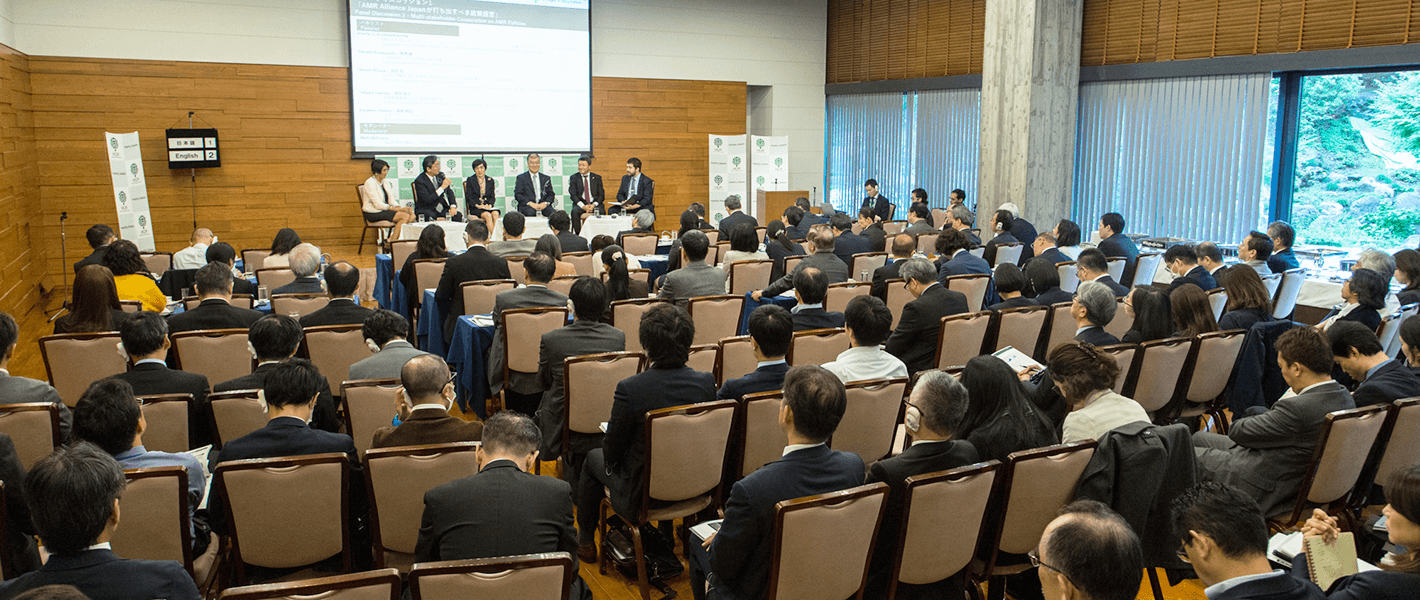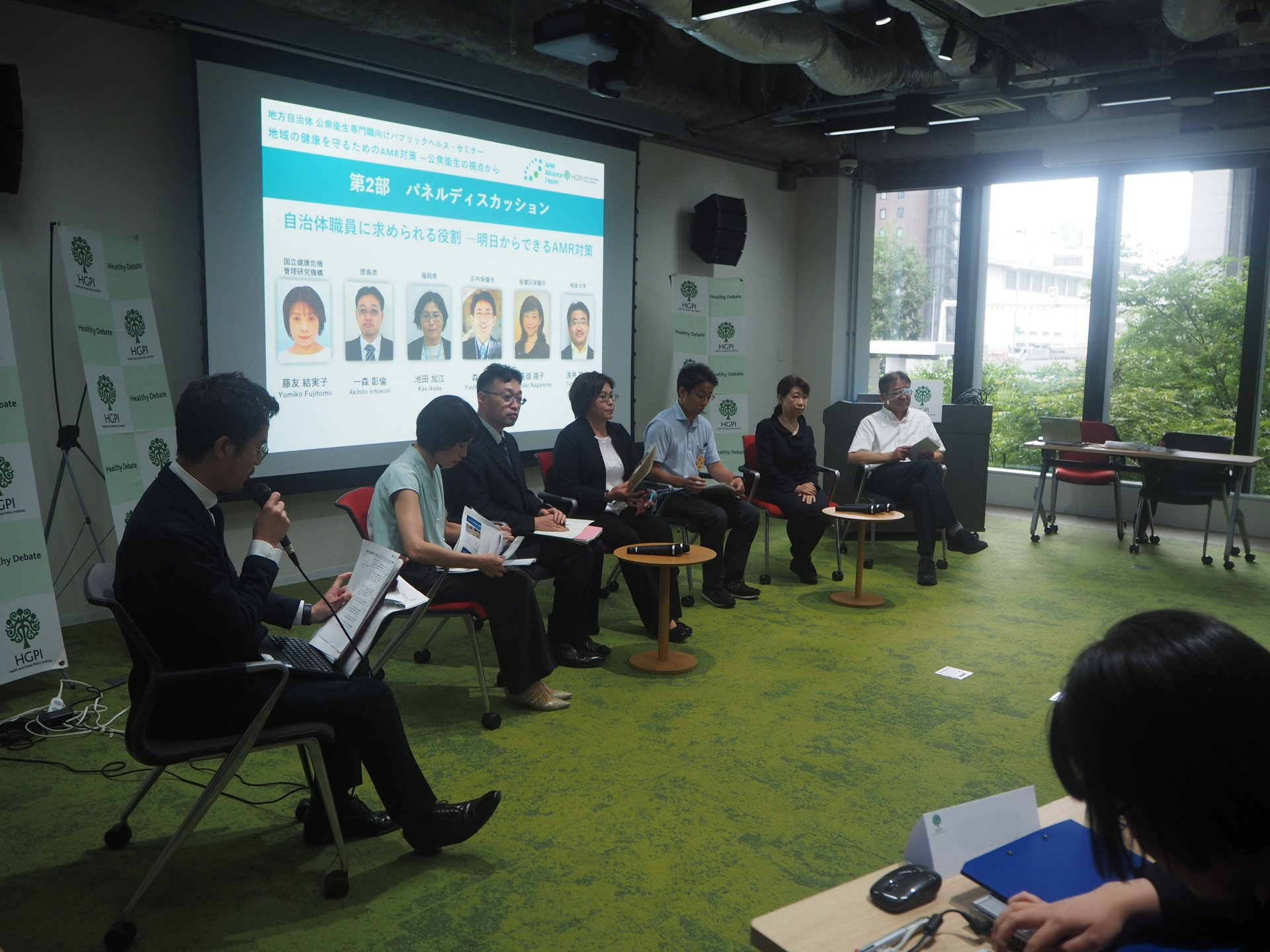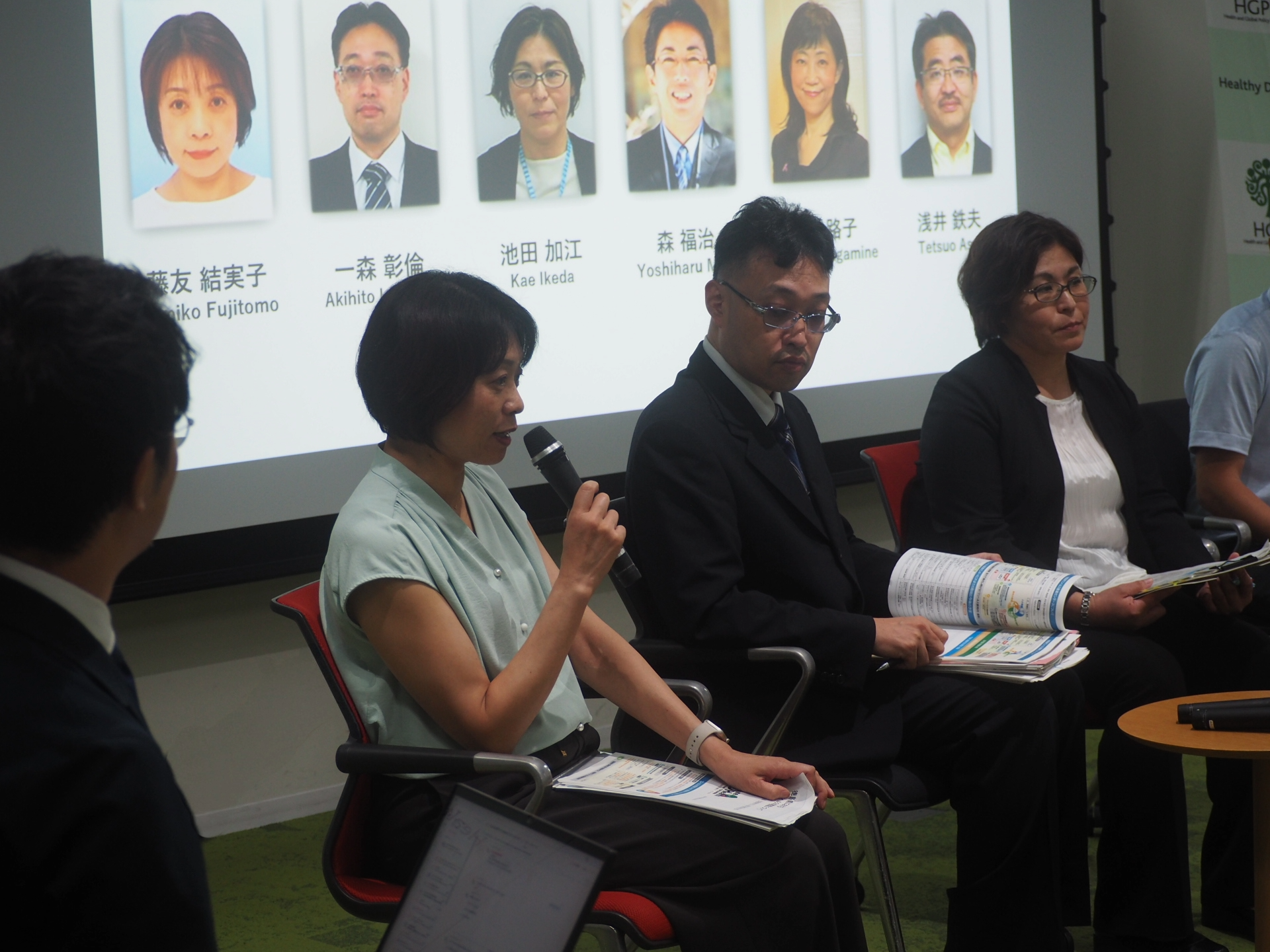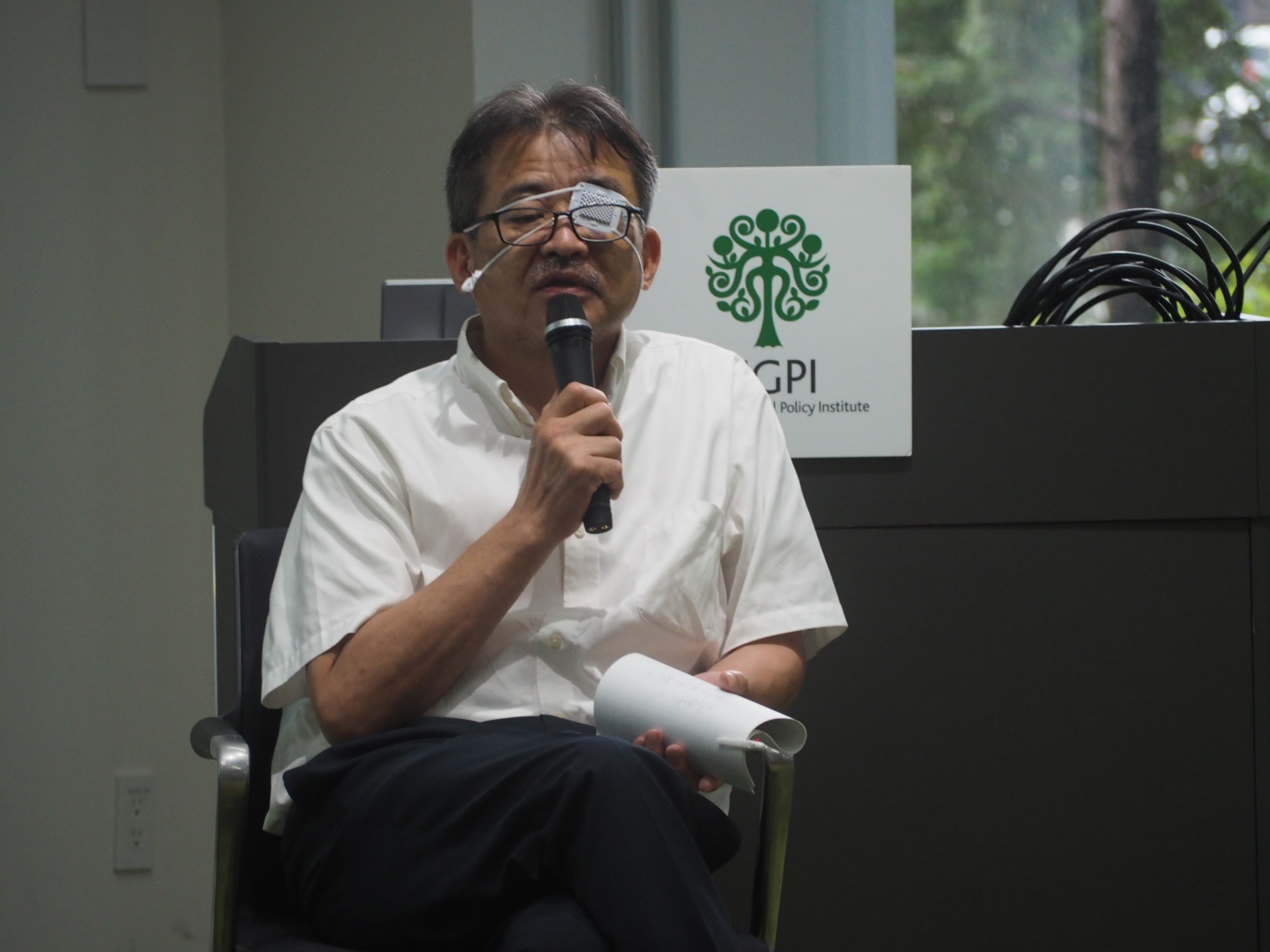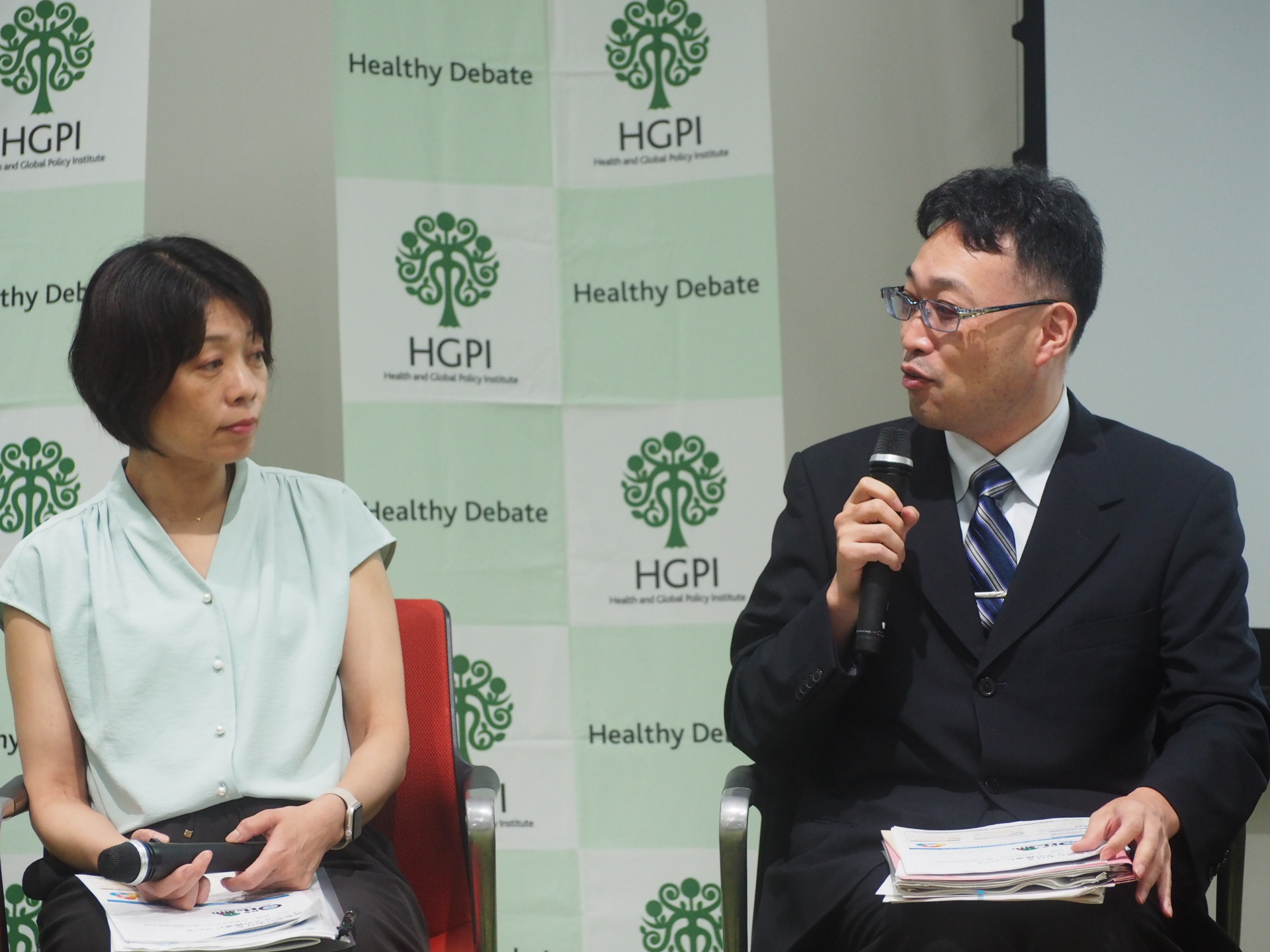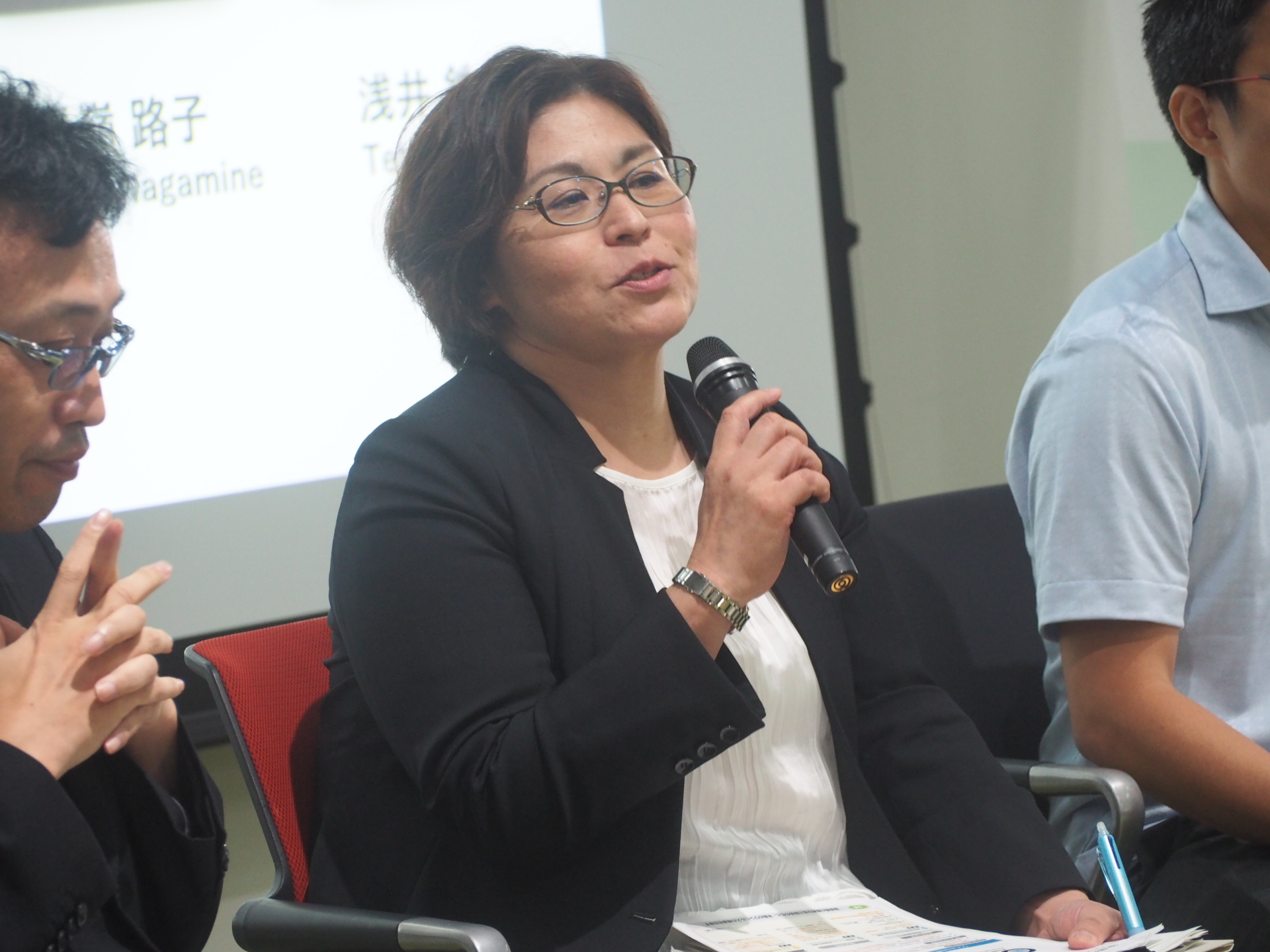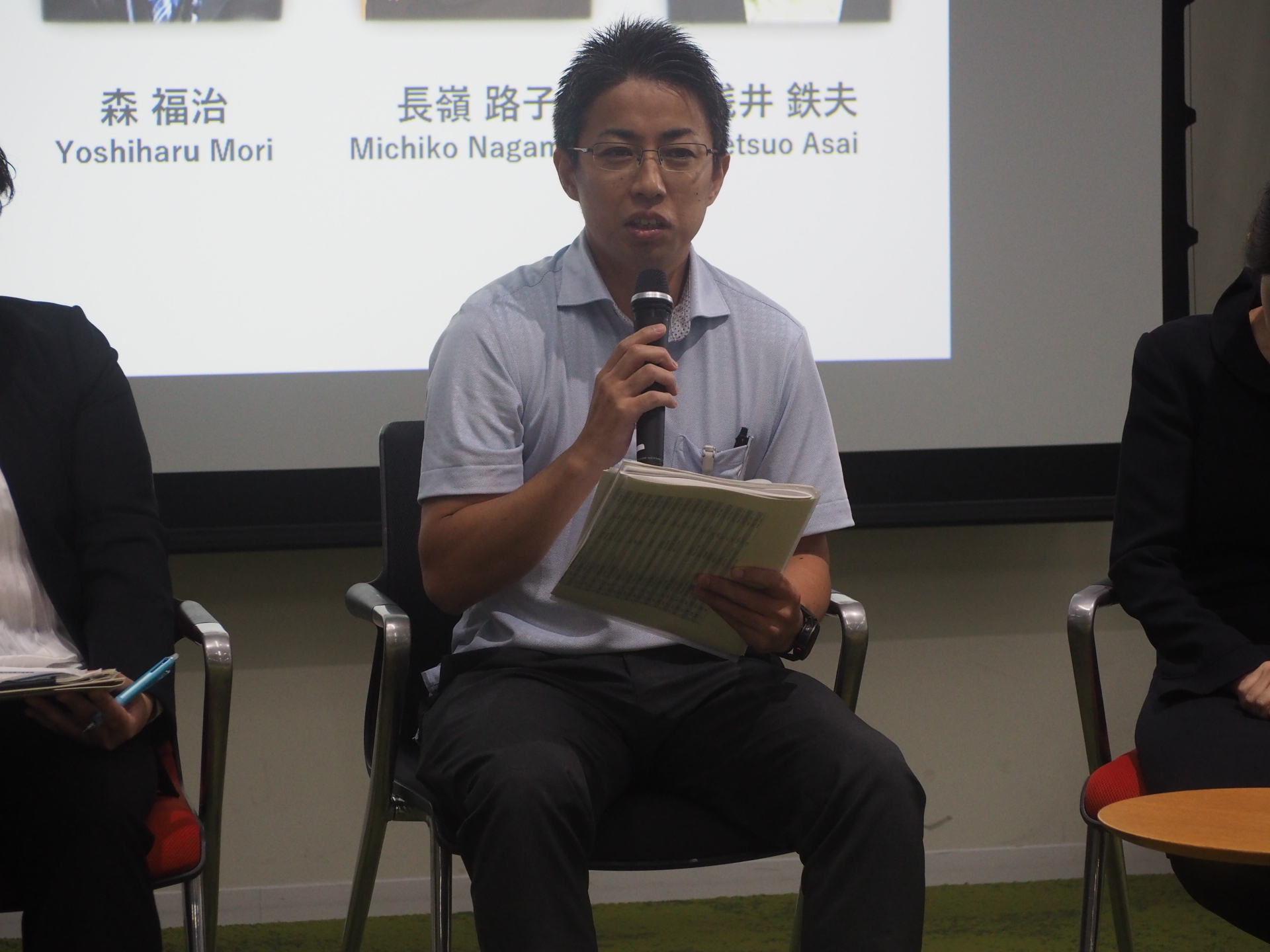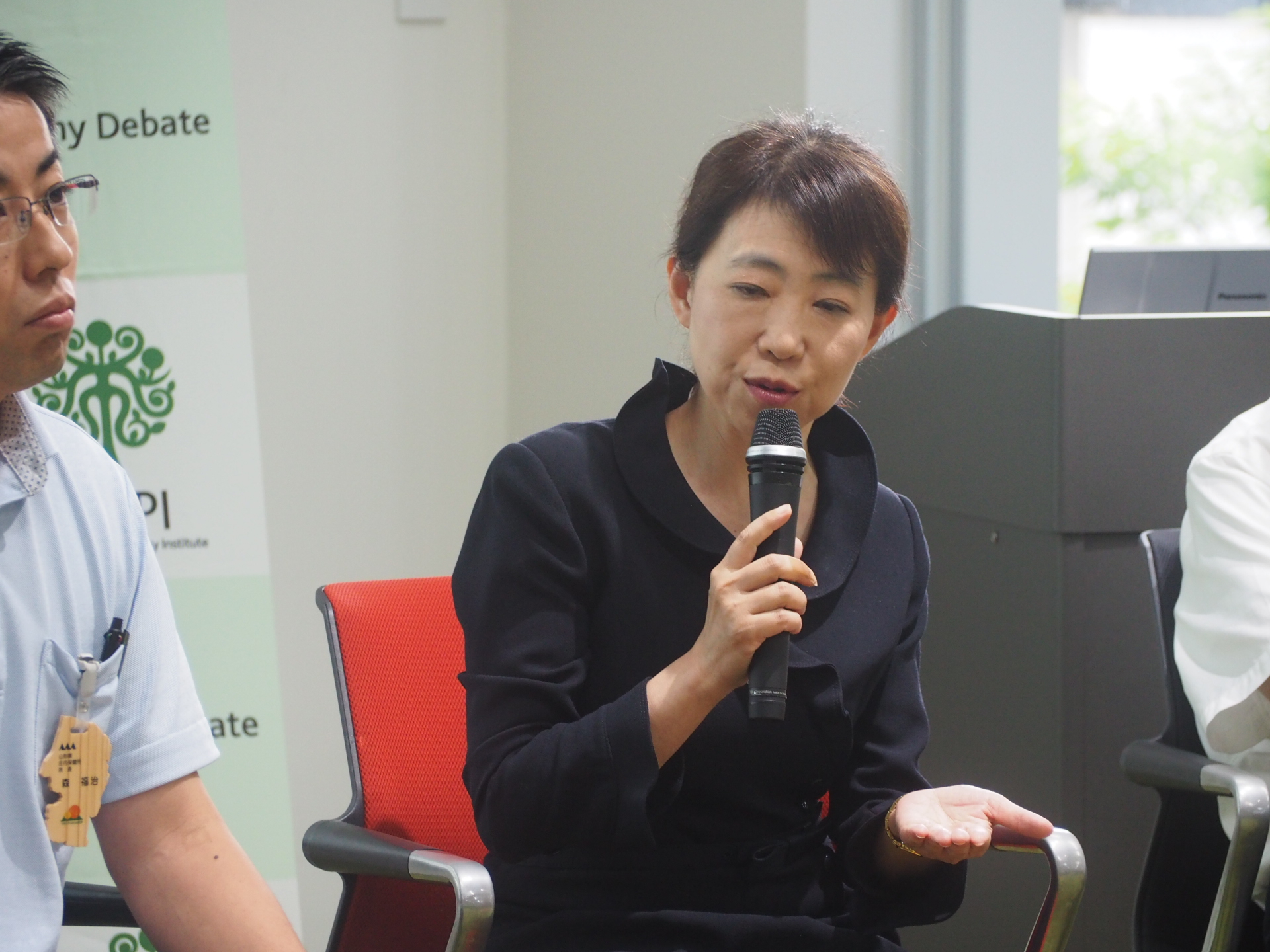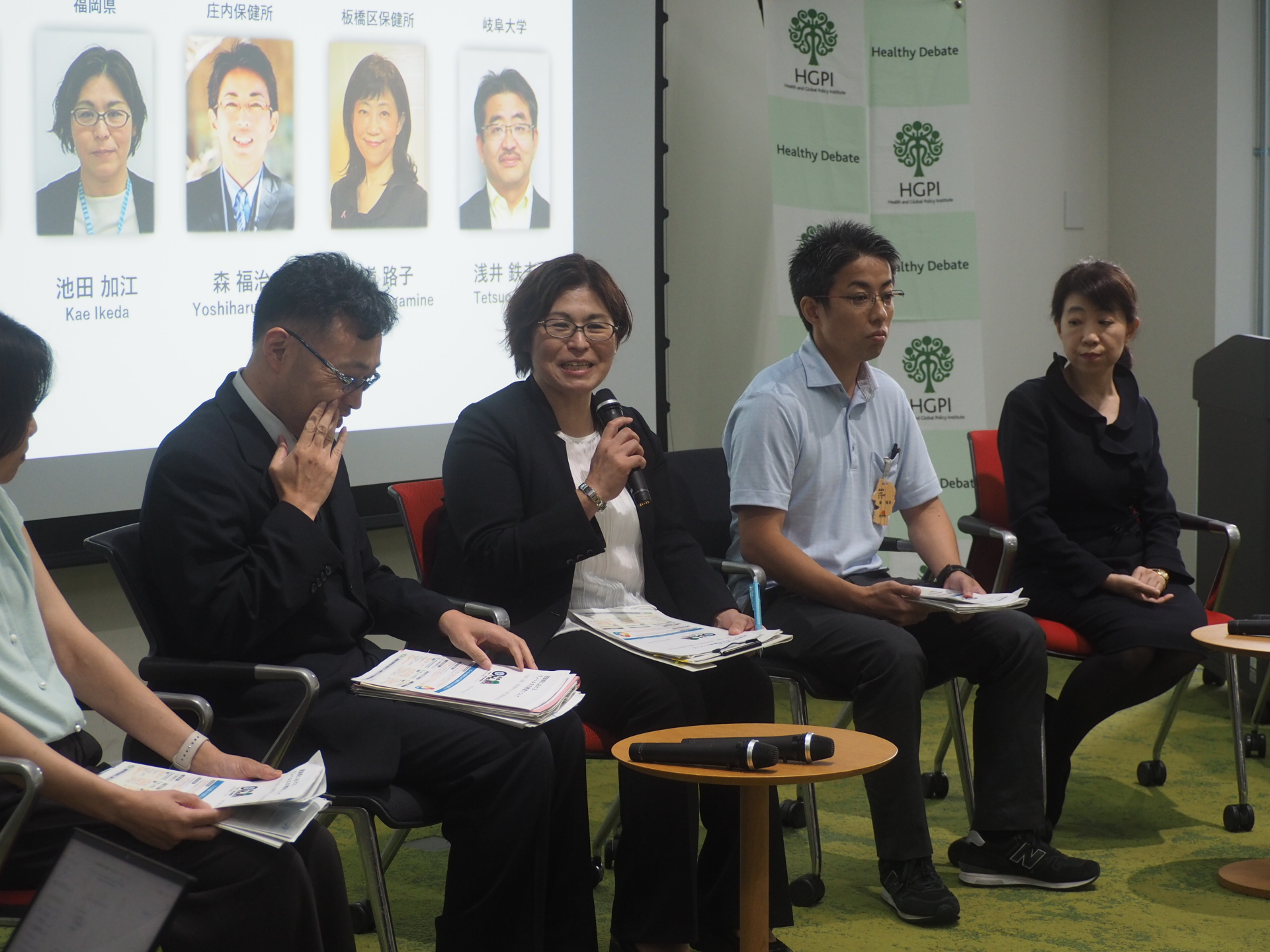[Event Report] Public Health Seminar for Local Public Health Professionals: “AMR Measures to Protect Community Health – A Public Health Perspective” (July 16, 2025)
- Home >
- Information >
- Event >
- [Event Report] Public Health Seminar for Local Public Health Professionals: "AMR Measures to Protect Community Health - A Public Health Perspective" (July 16, 2025)
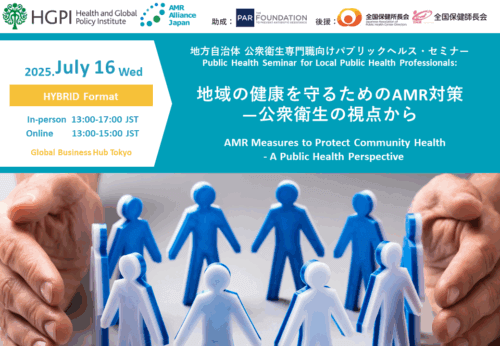 On July 16, 2025, Health and Global Policy Institute (HGPI) and AMR Alliance Japan hosted a public health seminar for local public health professionals, titled “AMR Measures to Protect Community Health – A Public Health Perspective.” Going forward, it is anticipated that public health professionals working in local governments will deepen their understanding of the basics of AMR, identify the connection between their own role and AMR countermeasures, and promote regional AMR policies through public awareness and educational support for local residents. There is also an expectation for further collaboration between related organizations in various fields.
On July 16, 2025, Health and Global Policy Institute (HGPI) and AMR Alliance Japan hosted a public health seminar for local public health professionals, titled “AMR Measures to Protect Community Health – A Public Health Perspective.” Going forward, it is anticipated that public health professionals working in local governments will deepen their understanding of the basics of AMR, identify the connection between their own role and AMR countermeasures, and promote regional AMR policies through public awareness and educational support for local residents. There is also an expectation for further collaboration between related organizations in various fields.
With the kind permission of the speakers, and in order to further contribute to the development of AMR countermeasures, HGPI has posted materials from this seminar which include examples of initiatives by various local governments.
[Event Overview]
- Date & Time: Wednesday, July 16, 2025; 13:00-17:00 JST
- Format: Hybrid (In-Person and Online (Zoom Webinar))
- Venue: Global Business Hub Tokyo Field
(Grand Cube 3F, Otemachi Financial City, 1-9-2, Otemachi, Chiyoda-ku, Tokyo, JAPAN 100-0004) - Language: Japanese
- Hosted by: Health and Global Policy Institute, AMR Alliance Japan
- Sponsored by: The Foundation to Prevent Antibiotic Resistance
- Supported by: Japan Association of Public Health Center Directors, Japan Association of Public Health Nurse Directors
- Target Audience: Municipal public health nurses and other public health staff engaged in public health activities in local governments
*Includes staff of prefectural and municipal government headquarters, public health centers, and regional public health research institutes.
*Not limited to infectious disease control personnel, but covering a wide range of public health professionals engaged in both personal health and environmental health fields. - Participation fee: Free
[Program] (Titles omitted) *You can download the materials (available in Japanese only) for the day by clicking on each presentation title below.
| Part 1 (Hybrid Format) | ||||||||||
| 13:00-13:10 | Opening Remarks and Explanatory Introduction | |||||||||
| Yui Kohno (Manager, Health and Global Policy Institute / AMR Alliance Japan) | 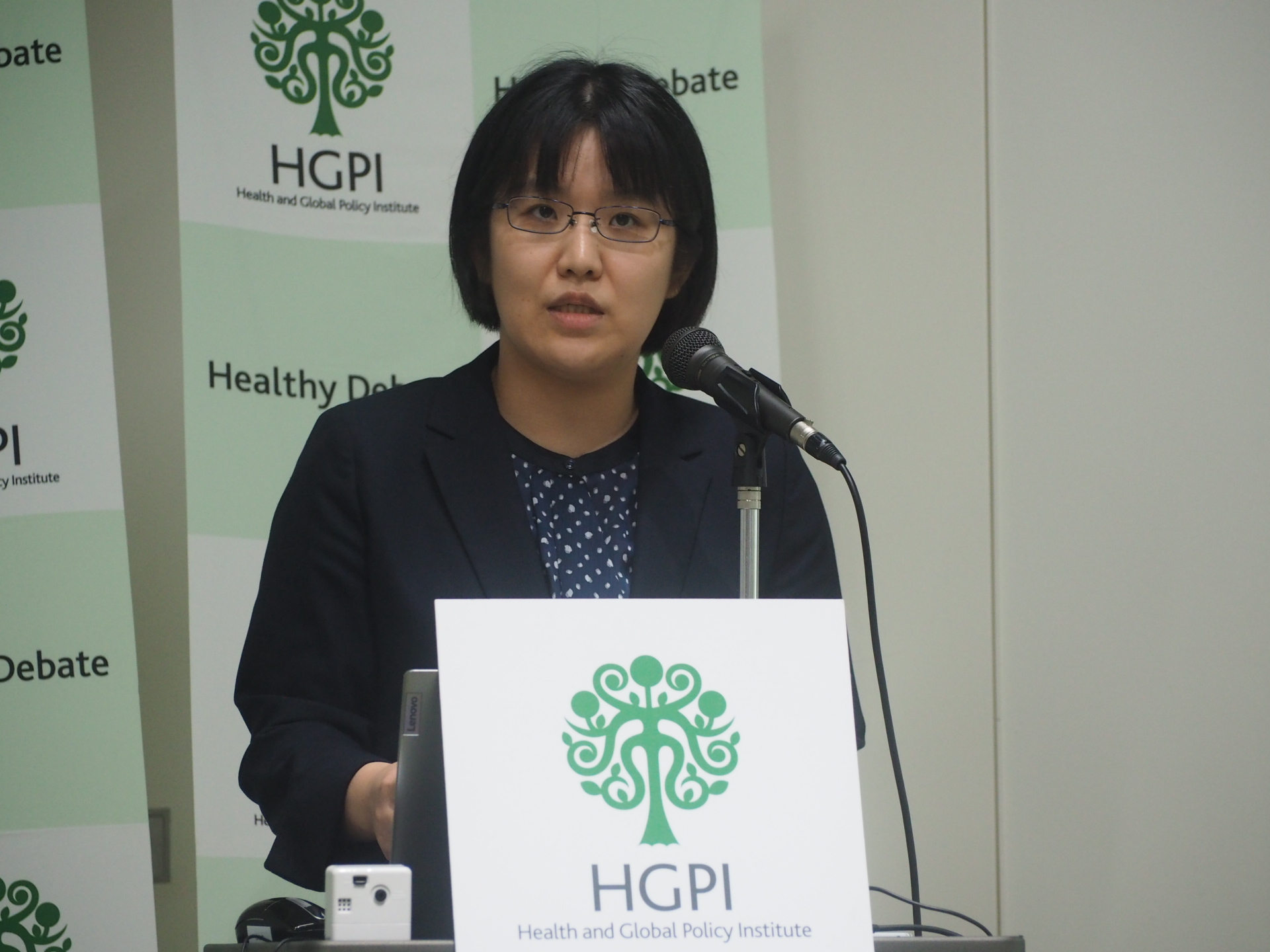 |
|||||||||
| 13:10-13:40 | Lecture 1: “Current Drug Resistance Countermeasures Required of Local Governments” |
|||||||||
| Yumiko Fujitomo (Director, Information and Education Support Office, AMR Clinical Reference Center) | 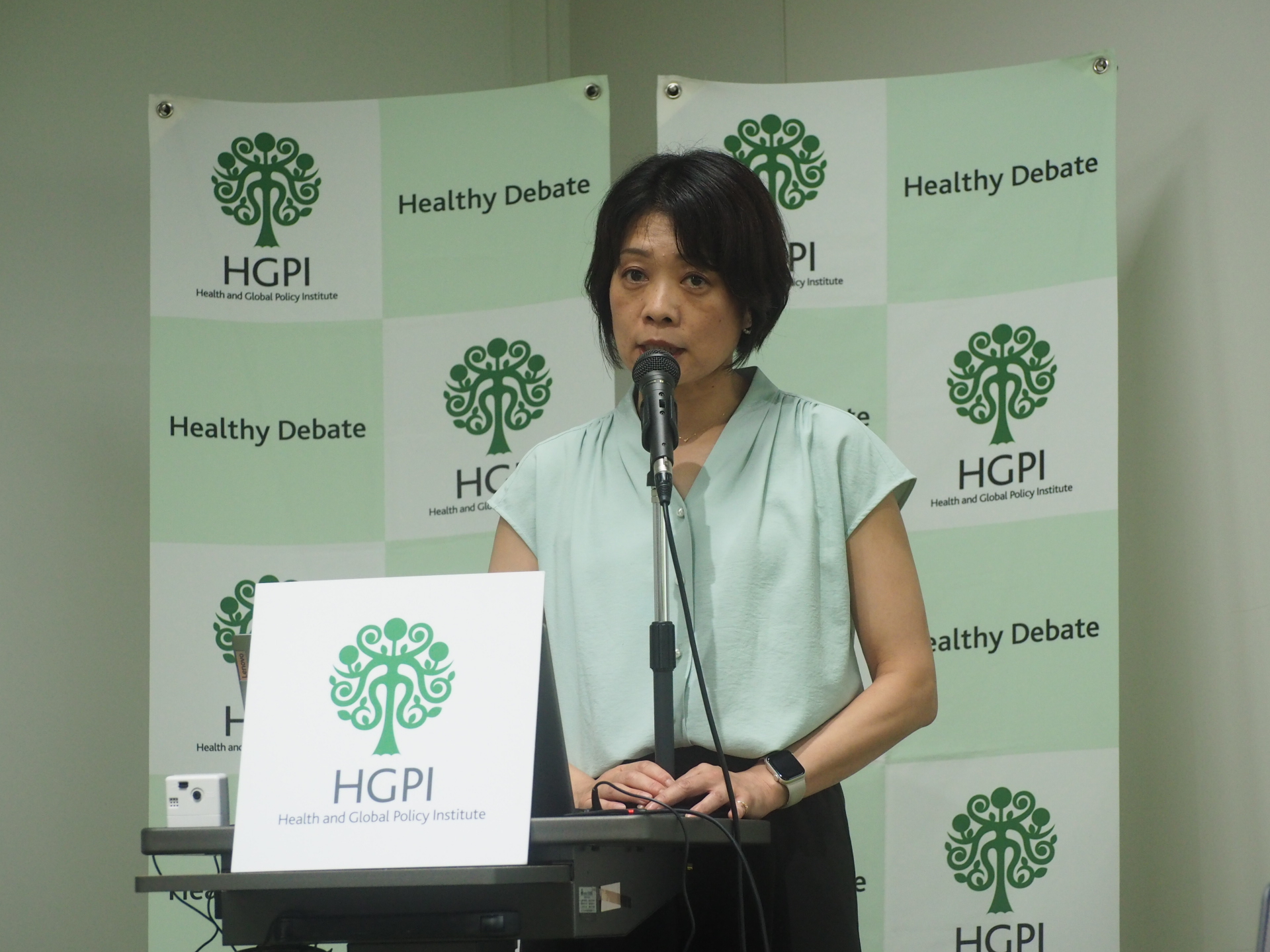 |
|||||||||
| 13:40-14:10 | Lecture 2: “A One Health Approach for Local Communities Based on Human-Animal Relationships“ | |||||||||
| Tetsuo Asai (Professor, United Graduate School of Veterinary Sciences, Gifu University) | 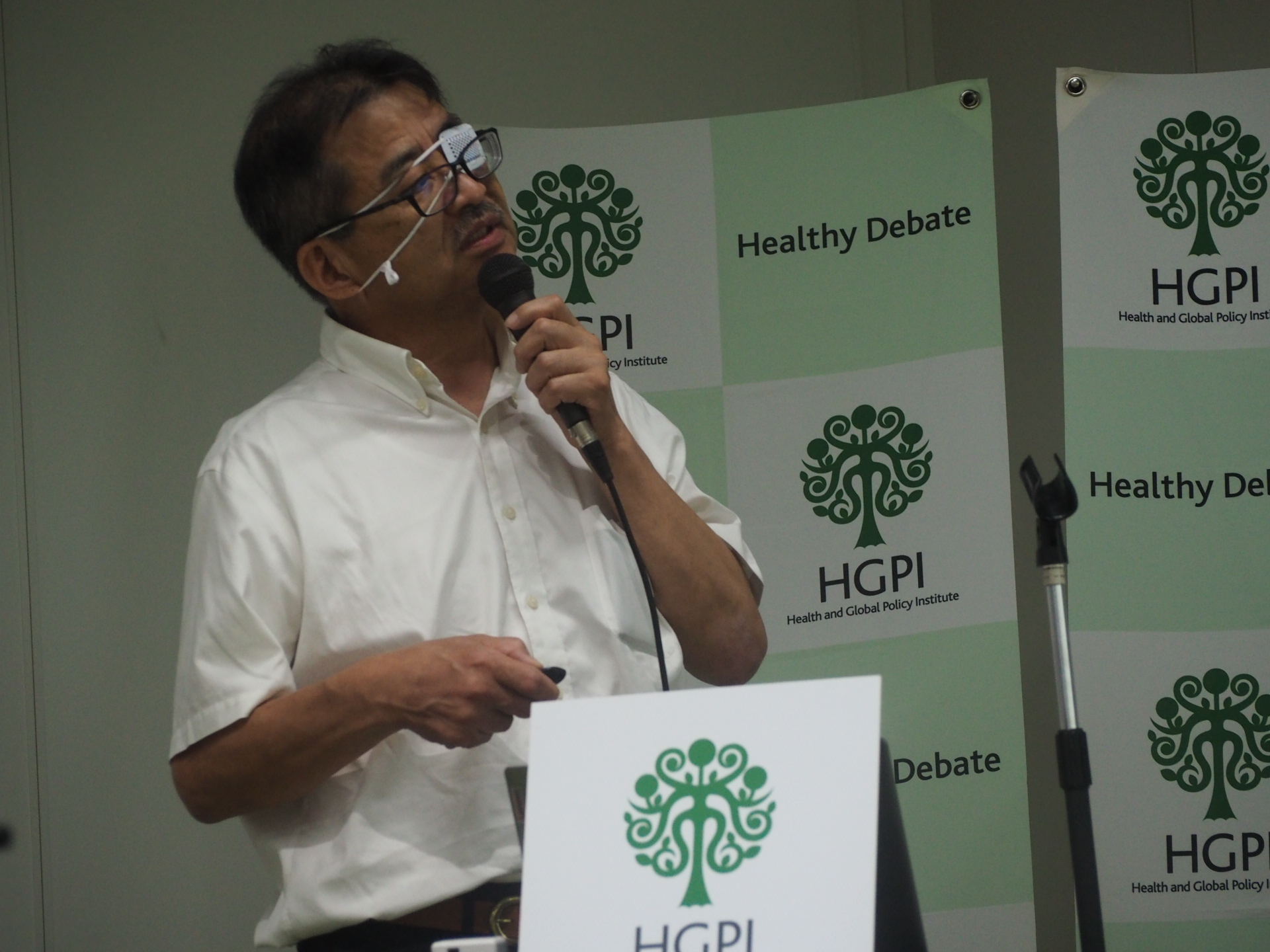 |
|||||||||
| 14:15-15:00 | Case Study Report: “Public Health Activities in Local Governments – Examples of AMR Measures” | |||||||||
| “Promotion of One Health in Tokushima Prefecture: Cross-regional, Cross-organizational, and Cross-departmental Measures Against Zoonotic Diseases“ Akihito Ichimori (Assistant Section Chief, Food Safety and Environmental Health, Safety and Health Division, Department of Living Environment, Tokushima Prefectural Government) |
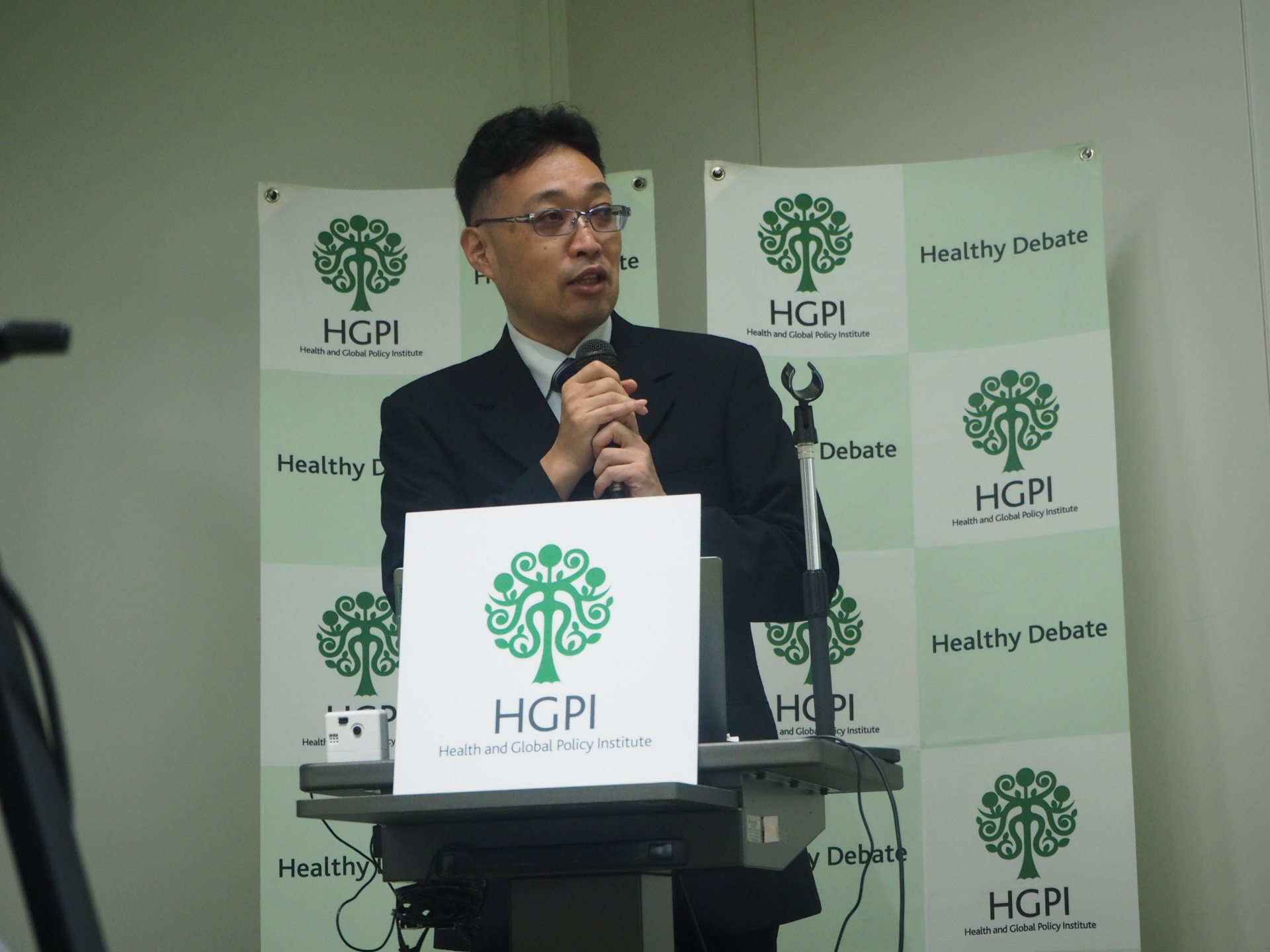 |
|||||||||
| “One Health Initiatives in Fukuoka Prefecture“ Kae Ikeda (Chief, Research and Base Development Section, One Health Promotion Division, Health, Medical and Nursing Care Department, Fukuoka Prefecture) |
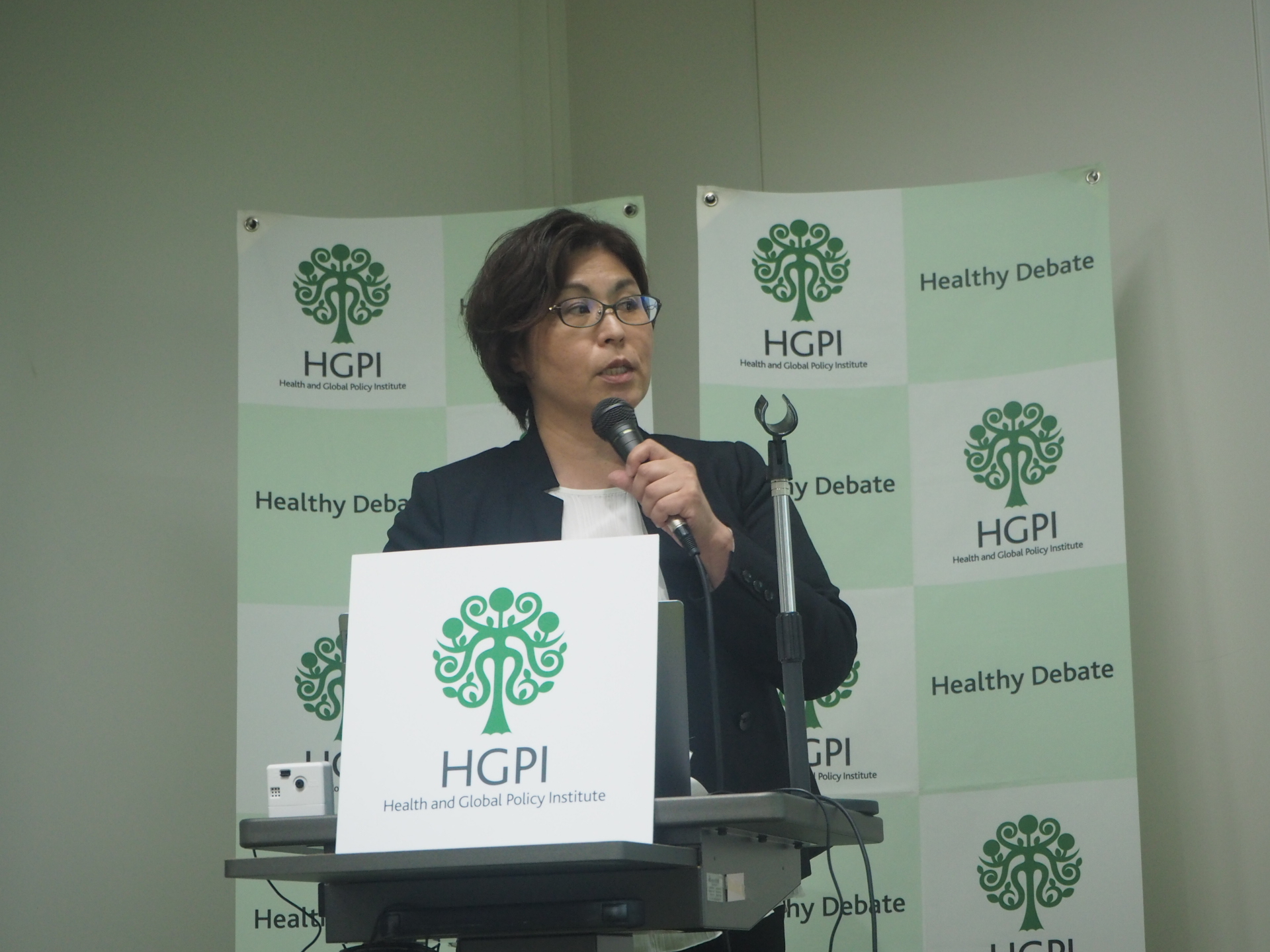 |
|||||||||
| “Activity Report on the Yamagata Prefecture Murayama Region AMR (Antimicrobial Resistance) Countermeasure Network” Yoshiharu Mori (Medical Director and Chief, Yamagata Prefecture Shonai Public Health Center) |
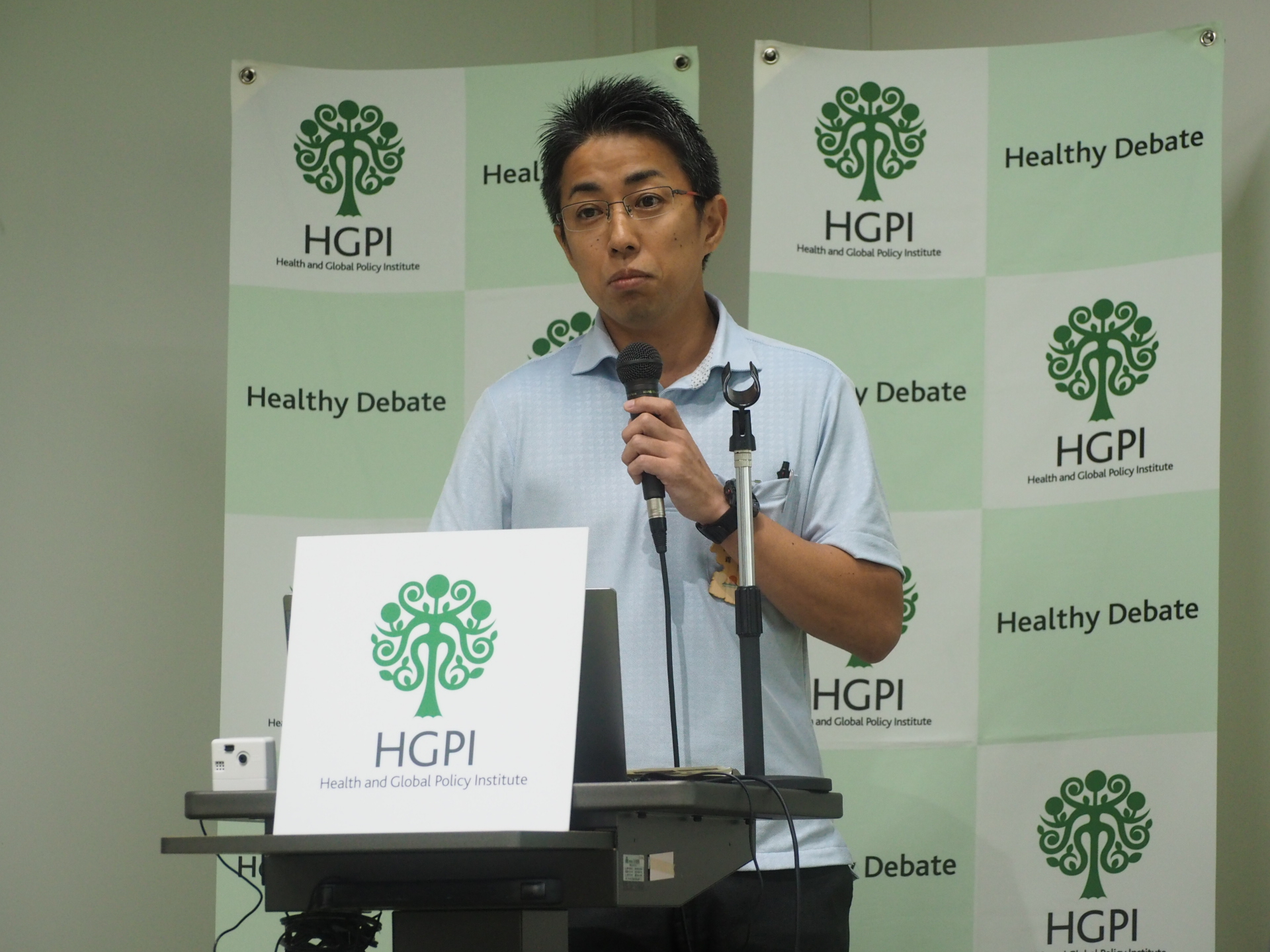 |
|||||||||
| “Trial Efforts for Antimicrobial Resistance Countermeasures at the Minato Regional Infection Control Council (MICC)“ Subaru Kitanozawa (Minato City Minato Public Health Center, Section Chief for Community Healthcare Coordination) |
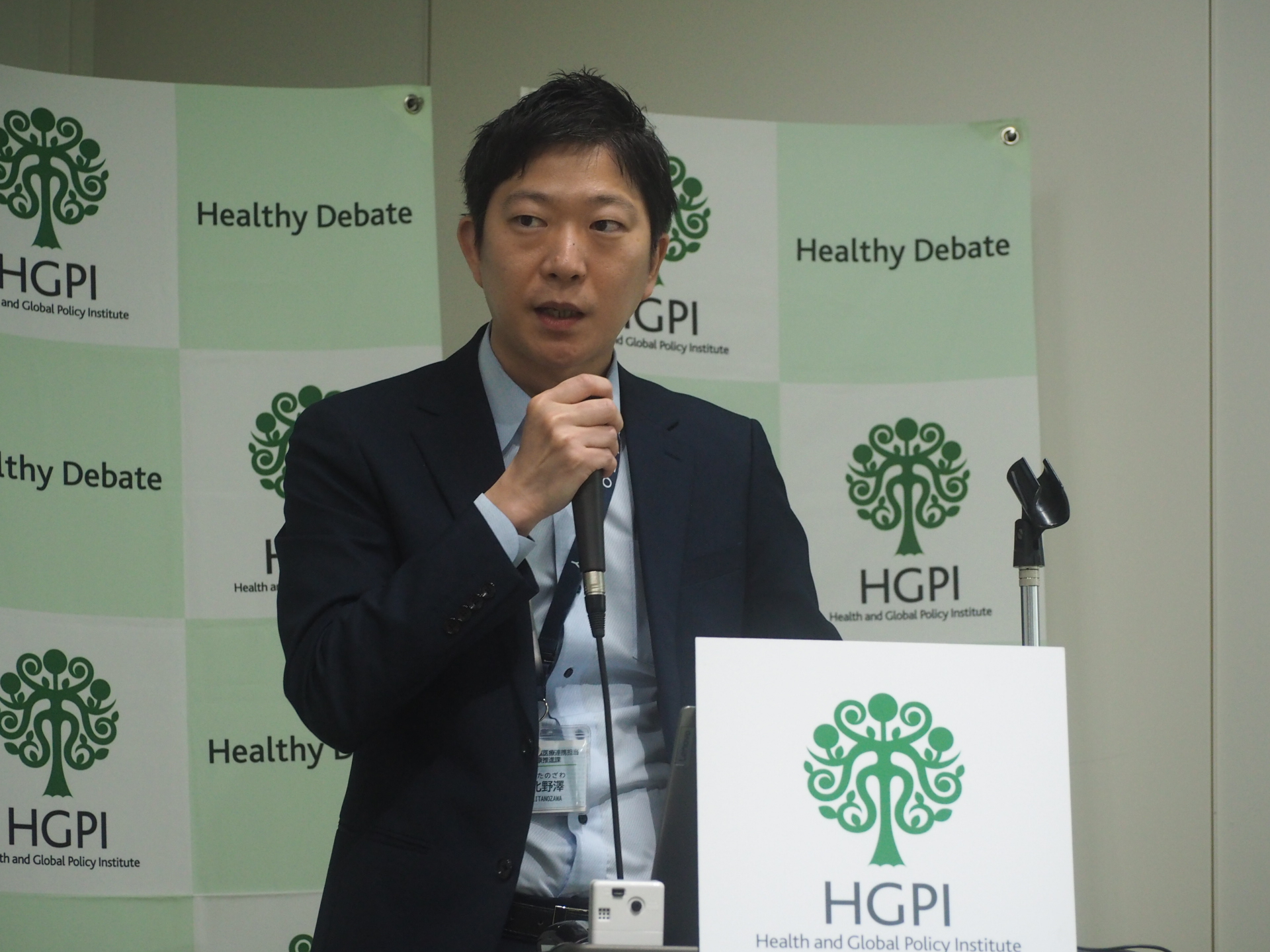 |
|||||||||
| “Efforts to Redesign Existing Programs, Including Tuberculosis Countermeasures, at Health Centers in Tokyo” Michiko Nagamine (Director, Itabashi City Public Health Center) |
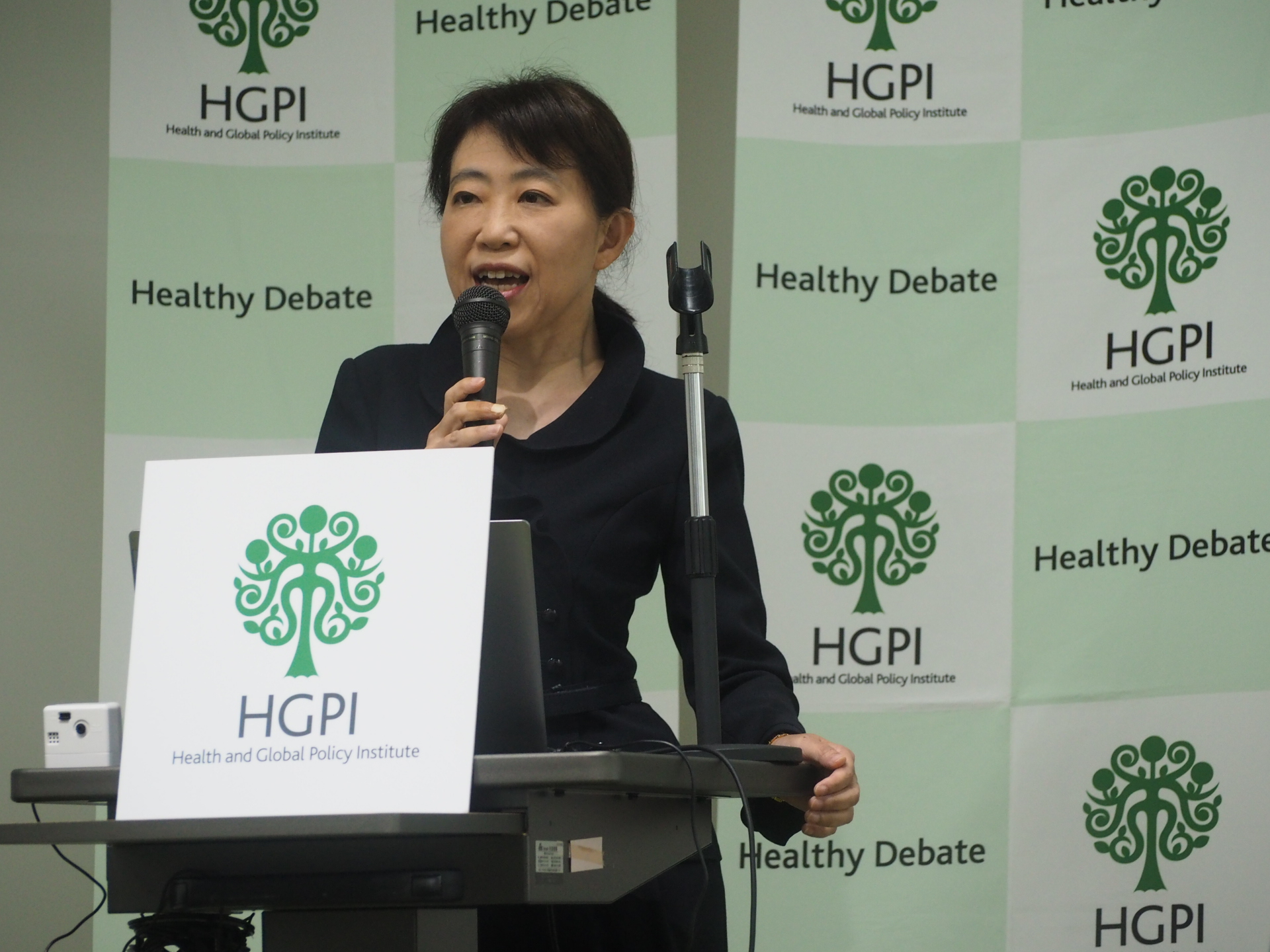 |
|||||||||
| “Outreach and awareness-raising efforts in Himeji City“ Akinobu Matsuda (Section Chief, Community Healthcare Division, Health and Medical Affairs Department, Health and Welfare Bureau, Himeji City) *Online |
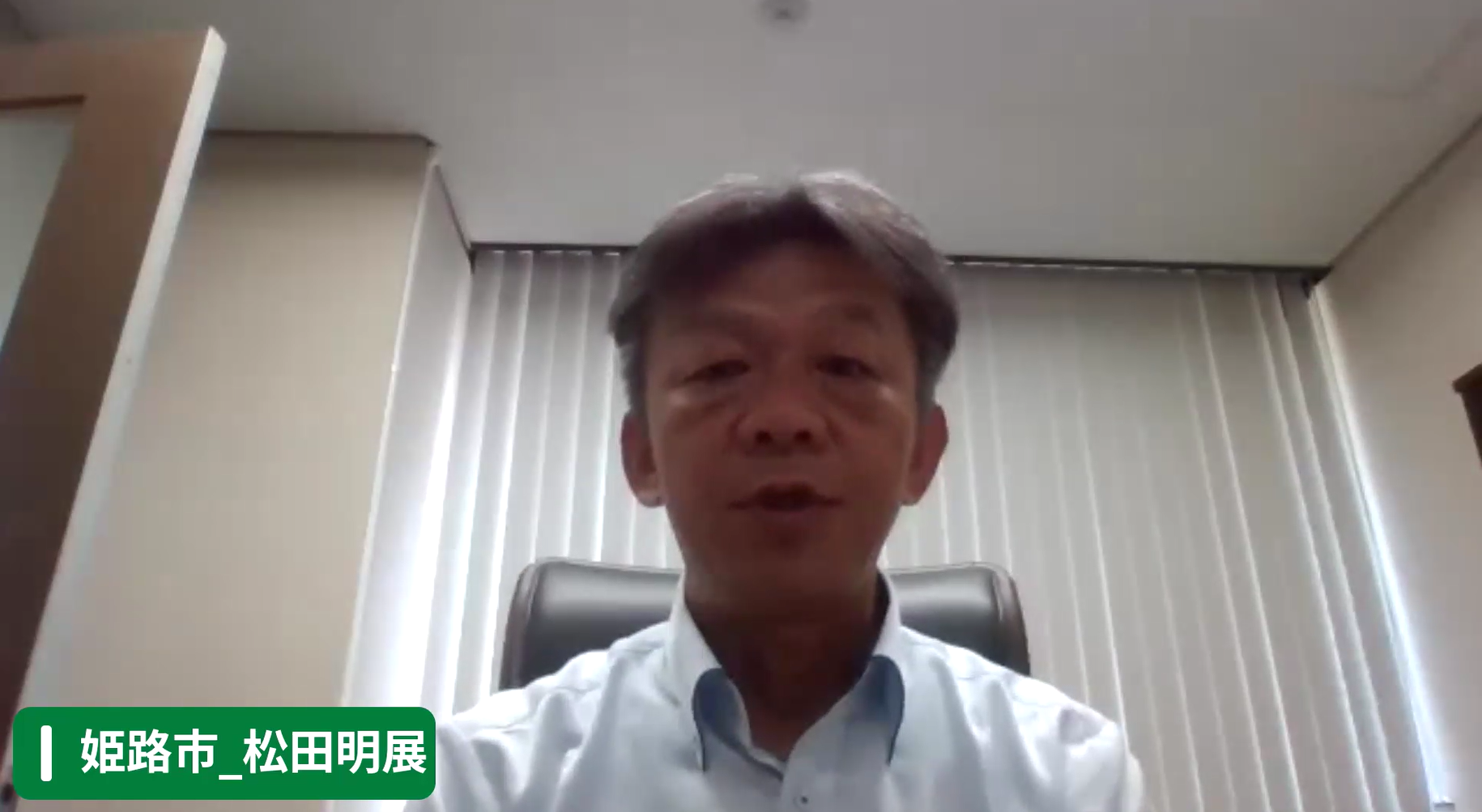 |
|||||||||
| Q&A Session | 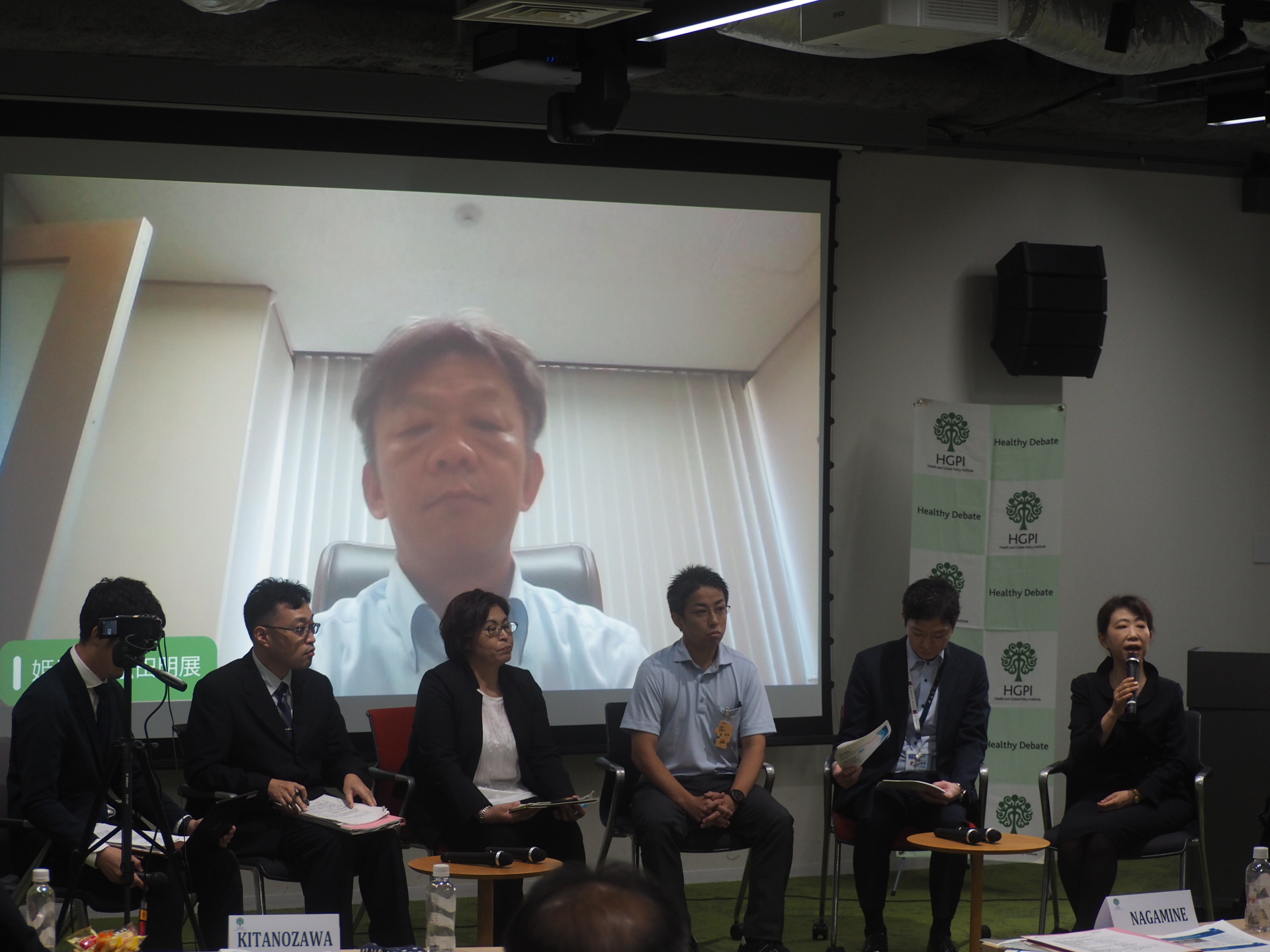 |
|||||||||
| Part 2 (In-person, Venue Only) | ||||||||||
| 15:15-16:15 | Panel Discussion: “The Role Required of Local Government Officials – Actionable AMR Measures for Tomorrow” | |||||||||
| Panelists (in alphabetical order): Tetsuo Asai (Professor, United Graduate School of Veterinary Sciences, Gifu University) Yumiko Fujitomo (Director, Information and Education Support Office, AMR Clinical Reference Center) Akihito Ichimori (Assistant Section Chief, Food Safety and Environmental Health, Safety and Health Division, Department of Living Environment, Tokushima Prefectural Government) Kae Ikeda (Chief, Research and Base Development Section, One Health Promotion Division, Health, Medical and Nursing Care Department, Fukuoka Prefecture) Subaru Kitanozawa (Minato City Minato Public Health Center, Section Chief for Community Healthcare Coordination) Yoshiharu Mori (Medical Director and Chief, Yamagata Prefecture Shonai Public Health Center) Michiko Nagamine (Director, Itabashi City Public Health Center) Moderator: Daichi Watanabe (Senior Associate, Health and Global Policy Institute) |
||||||||||
|
||||||||||
| 16:15-16:20 | Closing Remarks | |||||||||
| 16:20-17:00 | Networking | |||||||||
■ Background
In recent years, antimicrobial resistance (AMR) has become a serious public health issue worldwide. The Japanese government formulated the first AMR Action Plan (2016-2020) in 2016, and is currently promoting AMR countermeasures under the second plan (2023-2027). With the support of the action plan, awareness, and efforts to deepen knowledge and understanding of AMR have been carried out in various organizations, and educational reform for medical professionals have achieved some degree of success. However, there is still room for improvement in the general public’s understanding of antibiotics and AMR, and in an annual survey of public awareness, about half of the respondents held the misunderstanding that antibiotics are effective against viral infections. In light of this, it is clear that even if healthcare professionals promote the appropriate use of antibiotics, the effectiveness of AMR countermeasures will remain limited as long as the general public does not share this understanding.
Educational and learning support related to AMR have mainly targeted the general public through awareness campaigns and media outreach, but new measures are needed to further coordinate existing efforts and achieve greater results. In this context, public health professionals in local governments, particularly public health nurses, play an important role in raising public awareness of health and preventing infectious diseases. For example, it is possible to strengthen information provision outside of clinical settings for the 20-39 age group, which is a group that uses antibiotics frequently. In Himeji City, public health nurses distribute guidebooks containing information on AMR countermeasures when visiting households with infants up to four months old as part of the “Hello Baby” program, which involves visiting all households with infants. Public health professionals, unlike medical professionals affiliated with medical institutions such as clinics and pharmacies, are in a better position to engage with a wide range of fields, including agriculture, food safety, sewage facilities, and nursing care facilities, and can play a central role in AMR countermeasures that encompass the entire community. Creating an environment in which public health professionals can promote AMR countermeasures is extremely important for long-term AMR awareness and learning support.
HGPI held a hybrid seminar with the aim of enabling public health professionals to become more actively involved in promoting AMR countermeasures tailored to the characteristics of each region and field of work. Specifically, the seminar allowed for the sharing of basic knowledge about AMR and examples of countermeasures in local governments. In the second part of the seminar, a discussion was held between the speakers and local participants to consider specific activities based on issues in their respective regions or fields. Given that AMR countermeasures span diverse fields, this seminar was not limited to infectious disease specialists, but also targeted public health professionals across a wide range of areas including maternal and child health, mental health, food safety, and companion animals. The seminar provided participants with an opportunity to identify the intersections between their respective regions or fields of work and effective AMR measures.
■ Speakers’ Profile (Titles omitted; listed in order of presentation)
 Yui Kohno (Manager, Health and Global Policy Institute, AMR Alliance Japan)
Yui Kohno (Manager, Health and Global Policy Institute, AMR Alliance Japan)
Ms. Kohno is a graduate of the University of Sydney School of Public Health’s Faculty of Medicine and Health in Australia. After obtaining a Master of Health Policy degree from the University of Sydney, she joined Health and Global Policy Institute. She is responsible for research and analysis of national and global policy challenges within and beyond the fields of antimicrobial resistance (AMR) and vaccination. Her activities include planning and coordinating conferences for better policy dialogue and discussion and engaging in public relations, outreach, and advocacy activities.
 Yumiko Fujitomo (Head of the Office for Information and Education Support, AMR Clinical Reference Center, National Center for Global Health and Medicine, Japan Institute for Health Security)
Yumiko Fujitomo (Head of the Office for Information and Education Support, AMR Clinical Reference Center, National Center for Global Health and Medicine, Japan Institute for Health Security)
Holds a degree from the Faculty of Law at Kyoto University and a medical degree from Shiga University of Medical Science. Her clinical experience includes positions at Otsu City Hospital, Kyoto Prefectural University of Medicine, and the National Hospital Organization Osaka Medical Center. Prior to her current role, she served as an Assistant Professor in the Department of Infection Control and Laboratory Medicine/Infectious Diseases at Kyoto Prefectural University of Medicine. She joined the AMR Clinical Reference Center in 2017. She is a board-certified specialist in both general internal medicine by the Japanese Society of Internal Medicine and respiratory medicine by the Japanese Respiratory Society.
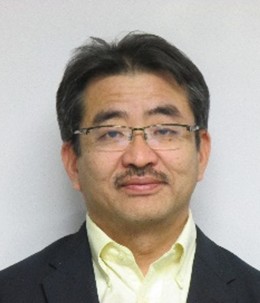 Tetsuo Asai (Professor, Graduate School of Veterinary Sciences, Gifu University)
Tetsuo Asai (Professor, Graduate School of Veterinary Sciences, Gifu University)
After graduating with a Master’s degree in Veterinary Medicine from Gifu University in 1989, he worked for the National Federation of Agricultural Co-operative Associations (JA Zen-Noh) and the National Veterinary Assay Laboratory (NVAL) of the Ministry of Agriculture, Forestry and Fisheries. He assumed his current position as a professor at the United Graduate School of Veterinary Sciences at Gifu University in 2013. At JA Zen-Noh, he researched infectious diseases in livestock. Since his time at NVAL, where he was engaged in monitoring antimicrobial resistance in livestock, he has continued research on antimicrobial-resistant bacteria in animals.
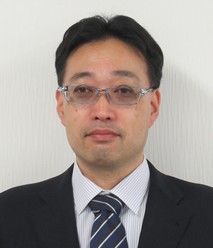 Akihito Ichimori (Assistant Section Chief, Food Safety and Environmental Health, Safety and Health Division, Department of Living Environment, Tokushima Prefectural Government)
Akihito Ichimori (Assistant Section Chief, Food Safety and Environmental Health, Safety and Health Division, Department of Living Environment, Tokushima Prefectural Government)
Joined the Tokushima Prefectural Government in 2000. Prior to his current role, he gained experience working in various environmental and public health and welfare departments, as well as at public health centers. He has been in his current position since 2025.
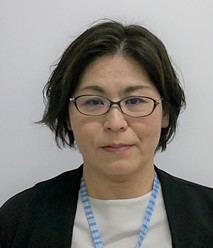 Kae Ikeda (Chief, Research and Base Development Section, One Health Promotion Division, Health, Medical and Nursing Care Department, Fukuoka Prefecture)
Kae Ikeda (Chief, Research and Base Development Section, One Health Promotion Division, Health, Medical and Nursing Care Department, Fukuoka Prefecture)
Joined the Fukuoka Prefectural Government in 2000. As a public health veterinarian, she has been engaged in food sanitation, living environment sanitation, animal welfare, and wildlife protection. She assumed her current position in 2024.
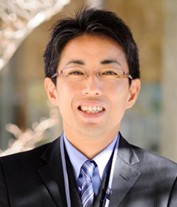 Yoshiharu Mori, M.D., Ph.D. (Medical Director and Chief, Yamagata Prefecture Shonai Public Health Center)
Yoshiharu Mori, M.D., Ph.D. (Medical Director and Chief, Yamagata Prefecture Shonai Public Health Center)
Graduated from the University of Toyama’s Faculty of Pharmacy in 2007 and Yamagata University’s School of Medicine in 2014. In 2025, he completed his doctoral studies at the Yamagata University Graduate School of Medical Science, earning a Ph.D. in Medical Science. After graduating from medical school, he worked as a pediatrician at a major hospital within Yamagata Prefecture. In 2021, he transitioned to public administration, working at the Yamagata Prefecture Murayama Public Health Center. There, he was involved in the response to the COVID-19 pandemic and also worked on initiatives such as disaster preparedness for children with special medical needs. He went to Ishikawa Prefecture as part of the Yamagata Prefecture Disaster Health Emergency Assistance Team (DHEAT) during the 2024 Noto Peninsula Earthquake. Since 2023, leveraging the network established during the pandemic, he has been involved in launching the AMR (Antimicrobial Resistance) Countermeasures Network for the Murayama region of Yamagata. He assumed his current position in April 2025. Dr. Mori is a licensed pharmacist and physician. His certifications include: Board Certified Pediatrician, Board Certified Specialist in Social Medicine, Infection Control Doctor (ICD), a certified physician by the Japanese Society for Pediatric Infectious Diseases, and a Certified Occupational Physician by the Japan Medical Association.
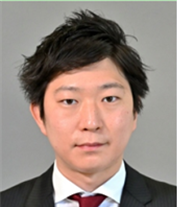 Subaru Kitanozawa (Minato City Minato Public Health Center, Section Chief for Community Healthcare Coordination)
Subaru Kitanozawa (Minato City Minato Public Health Center, Section Chief for Community Healthcare Coordination)
Joined the Minato City Office, Tokyo in 2006. After working at a general branch office and the Minato Public Health Center, he served as Section Chief for Welfare Facility Development in the Health and Welfare Support Department. He has held his current position since 2025, concurrently serving as Head of the Health Promotion Section at the Minato Public Health Center. He is responsible for a wide range of duties, including maternal and child health, adult health, mental health, measures for intractable diseases, and disaster medicine.
 Michiko Nagamine (Director, Itabashi City Public Health Center)
Michiko Nagamine (Director, Itabashi City Public Health Center)
Graduated from Tokai University School of Medicine. Completed initial residency and worked in the Department of General Medicine at Kawasaki Municipal Kawasaki Hospital, then obtained a Diploma in Tropical Medicine and Hygiene (DTMH) from Mahidol University in Thailand. She has worked in multiple municipalities, including Shinjuku City, the Tokyo Metropolitan Government, Setagaya City, and Minato City, engaging in infectious disease control, health promotion, and preventive measures. In particular, she served as Head of the Infectious Disease Control Section at the Setagaya City Public Health Center, Head of the Health Prevention Section at the Minato City Public Health Center, and Director of the Tokyo Metropolitan Tama-Tachikawa Public Health Center, before assuming her current position in 2025. She is a Certified Physician by the Japanese Society of Internal Medicine, certified ICD by the ICD Certification Council, certified specialist by the Japan Public Health Association, supervising physician by the Japanese Society for Tuberculosis, and holds a Doctor of Medicine degree.
 Akinobu Matsuda (Section Chief, Community Healthcare Division, Health and Medical Affairs Department, Health and Welfare Bureau, Himeji City)
Akinobu Matsuda (Section Chief, Community Healthcare Division, Health and Medical Affairs Department, Health and Welfare Bureau, Himeji City)
Graduated from the School of Human Sciences, Osaka University in 1997. Joined the Himeji City Office the same year and, after working mainly in the city’s health and welfare departments, he assumed his current position in 2025. He is actively engaged in public awareness initiatives on antimicrobial resistance (AMR) and related projects.
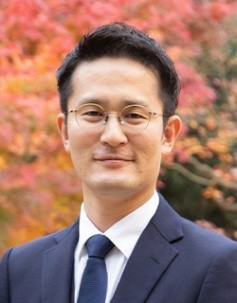 Daichi Watanabe (Senior Associate, Health and Global Policy Institute)
Daichi Watanabe (Senior Associate, Health and Global Policy Institute)
After graduating from Kobe University, Daichi Watanabe worked as a physical therapist, providing clinical care to older adults in the community while simultaneously earning a Master’s degree in Health Sciences from Kobe University Graduate School. This experience deepened his interest in viewing rehabilitation medicine from a macro perspective. He then joined the Secretariat of the Japanese Physical Therapy Association (JPTA), where he was responsible for executive support and contributed to initiatives promoting disaster rehabilitation and team-based healthcare. Additionally, he led the launch of new international projects in collaboration with domestic and global organizations to drive further progress in physical therapy worldwide. During his tenure at JPTA, he was seconded to the Health Insurance Bureau of the Ministry of Health, Labour and Welfare (MHLW), where he worked on promoting data-driven health initiatives and collaborative health initiatives for employee health insurers. In September 2024, he joined Health and Global Policy Institute (HGPI), where he is engaged in policy advocacy and initiatives aimed at real-world impact.
■ Program on the day (Japanese only)

